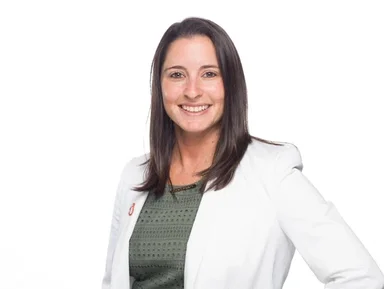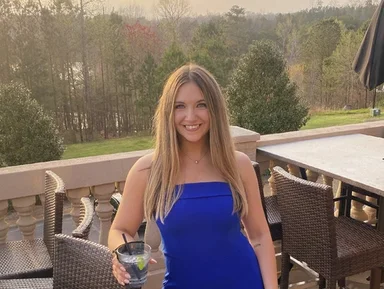How to Successfully Transition from Marketing to Partnerships


This article is part of our Women in Partnerships series, highlighting female professionals in the partnerships space. To learn more about the series and the Women in Partnerships group, check out the series intro.
Today, Bridget Graf, Product Marketing Manager at CallRail, joins us to discuss her experience as a woman in partnerships, her career path so far, advice for other industry professionals, and more.
Meet Bridget
Bridget Graf works at CallRail on the Product Marketing team as a Product Marketing Manager. In her role, she helps with the message and value proposition for CallRail with marketing agencies. Bridget also manages their agency partner program, helping agencies sell CallRail back to their clients. With that, she manages co-marketing and the recruitment side of partnerships, along with supporting operations.
Making the Leap from Marketing to Partnerships
Bridget worked at a marketing agency on the technology side before moving to the client-side at CallRail. “I helped large Fortune 500 companies with their mobile strategy. I learned a lot about agency life but really wanted to work on the client side. I wanted to really feel a sense of ownership and accomplishment that you’re removed from at an agency.”
Bridget originally went to school for journalism and wanted to use the skills she learned in an overlapping industry. “It worked out really well. My dad was in software sales for as long as I can remember, but I really just kind of fell into where I’m at and rode the wave a little bit.”
Digging in to Advance Her Career
While Bridget was at the marketing agency and during her time at CallRail, she completed her MBA. “I would work during the day, then do classes at night and on the weekend. I got my MBA from Georgia Tech in May of 2020.”
Bridget was grateful to have strong supporters cheering her on and shared that her parents had always raised her to be whatever she wanted. “My sister and I were raised with the idea that we could choose any career we wanted. In my MBA process, they were the biggest supporters I had.”
Overcoming Obstacles
Like other women we’ve featured, Bridget shared that she’s been working through imposter syndrome. “Especially as a woman, I’ve experienced a lot of imposter syndrome. Even though I worked at an agency before, the ones I’m working with are different now. I didn’t always feel like I could communicate with them correctly. Really, I felt like because I was doing something brand new, I was doing a bad job.”
Bridget has been working through these feelings and building her confidence. “I learned that asking questions, being curious, trying to understand pain points, and understand the customers better is really the only thing you can do to overcome it.”
In her role specifically, Bridget shared that she does a lot of customer interviews. “In continuing to talk to people, I’m able to hone my skill set and knowledge. The only way I understand is by trying to learn.”
Don’t Get Caught Up in Being a Woman
While being a woman in a male-dominated industry can significantly impact how you’re treated, your career trajectory, and more, Bridget highlighted key ways to appreciate your identity. “Something I learned at my first job is the balance between acknowledging and being empowered by your gender vs. not acknowledging it. When I internalize my gender, I feel overly self-conscious about it. For example, when I notice I’m the only woman in the room, I tend to get a little more nervous. It’s when I think of myself as any other person that I can transcend.”
Overall, Bridget tries not to think about her gender too much and wants to appreciate her unique value. “Now, looking at the powerful women I work with, they are super well-respected within the organization and are strong, powerful women. It motivated me to own it a little bit more. Especially being in partnerships, business development, and sales, which are all so male-heavy, having a female perspective is important and something I try to bring to the table. Stereotypes like curiosity, empathy, and understanding hold true and are valuable.”
Advice for Women in the Industry
Bridget was raised with the idea that women can do anything. She shared, “I don’t always feel like a lot of women I talk to, especially women in undergrad positions, were taught that. Women sell themselves short so often when they’re looking at entry-level roles. They’re not sure they have the skills to do it when men with the same experience often take the leap to apply.” HBR wrote about this in 2014: Why Women Don’t Apply for Jobs Unless They’re 100% Qualified.
Bridget’s advice for women? “You have to have the mentality that you’re able to do these jobs. Even if you don’t have all the qualifications right now, you have the skills to gain them along the way.”
On the same thread of putting yourself out there, Bridget shared that she was often guilty of not sharing her opinion when someone asked for her thoughts on something early in her career. “People would ask my opinion, and I would be deferential. Once I noticed that about myself and acknowledged it, I recognized people were asking for my opinion because they want to know what I have to say. Even if I don’t have extensive knowledge on a topic, if someone asks, I’ll candidly share my thoughts.”
Bridget realized that people eventually would stop asking for her opinion by being differential and not voicing her thoughts. “You have to keep putting yourself out there.”
The Importance of Groups like Women in Partnerships
Bridget shared that groups like Women in Partnerships are crucial to visualizing herself in future roles. “Especially because I’m earlier in my career, it’s nice to see what my career path could be. I’m sure there are many other paths that I could take similar to my male counterparts. But, seeing Christen or Joni, I see a lot more of myself in them. We have a lot more of the same skillset, drive, and ambition that makes me want to be a powerful woman in partnerships.”
Bridget shared that similar to seeing people you identify with in the media, seeing women in positions she eventually wants motivates her. “You don’t have to be a Fortune 500 CEO to be a powerful woman in business.”
There’s value in being able to connect with women you identify with and look up to. That’s why we’ve created a Women in Partnerships group, specifically for women in the industry.
Partnership Leaders enables personal and professional development for professionals in partnerships. Explore the benefits hundreds of SaaS professionals have joined for.
Dig deeper into the career journeys of impactful ladies in the industry when you download Powerful Women in Partnerships. You can also be inspired by more powerful women in the industry in all of our Women in Partnerships spotlights.




